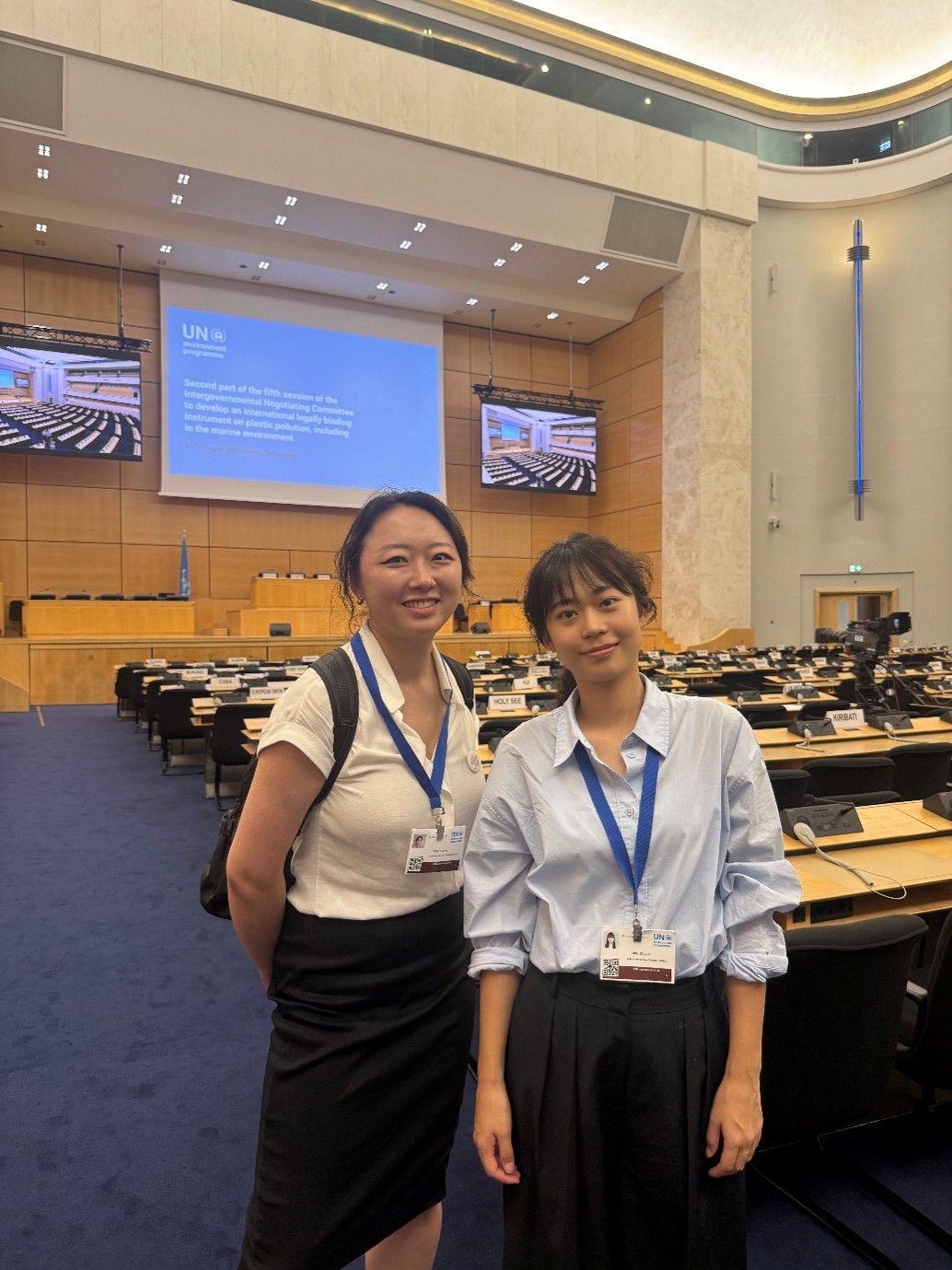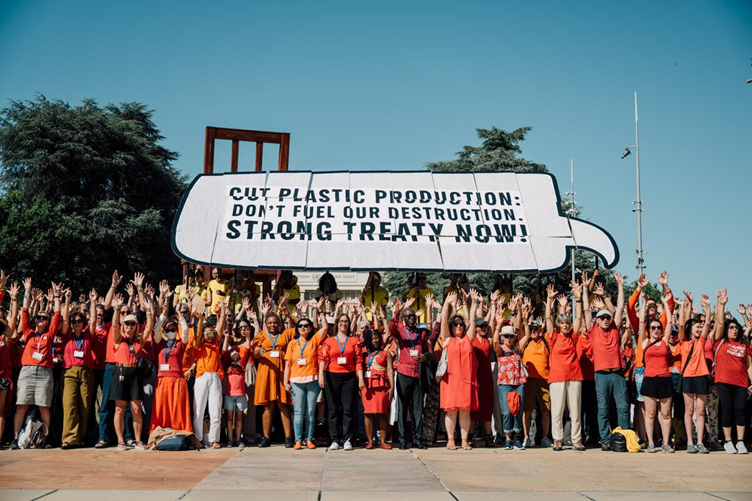
“This is not a plastics treaty.”
When a few delegates uttered these words in the contact group, we couldn’t quite believe our own ears. If not plastics, what exactly were these negotiations supposed to be about?
The treaty in question, of course, is what could have been the outcome of a successful round of Intergovernmental Negotiating Committee (INC) 5.2 talks: an international, legally binding instrument aimed at ending plastic pollution.
What is INC-5.2?
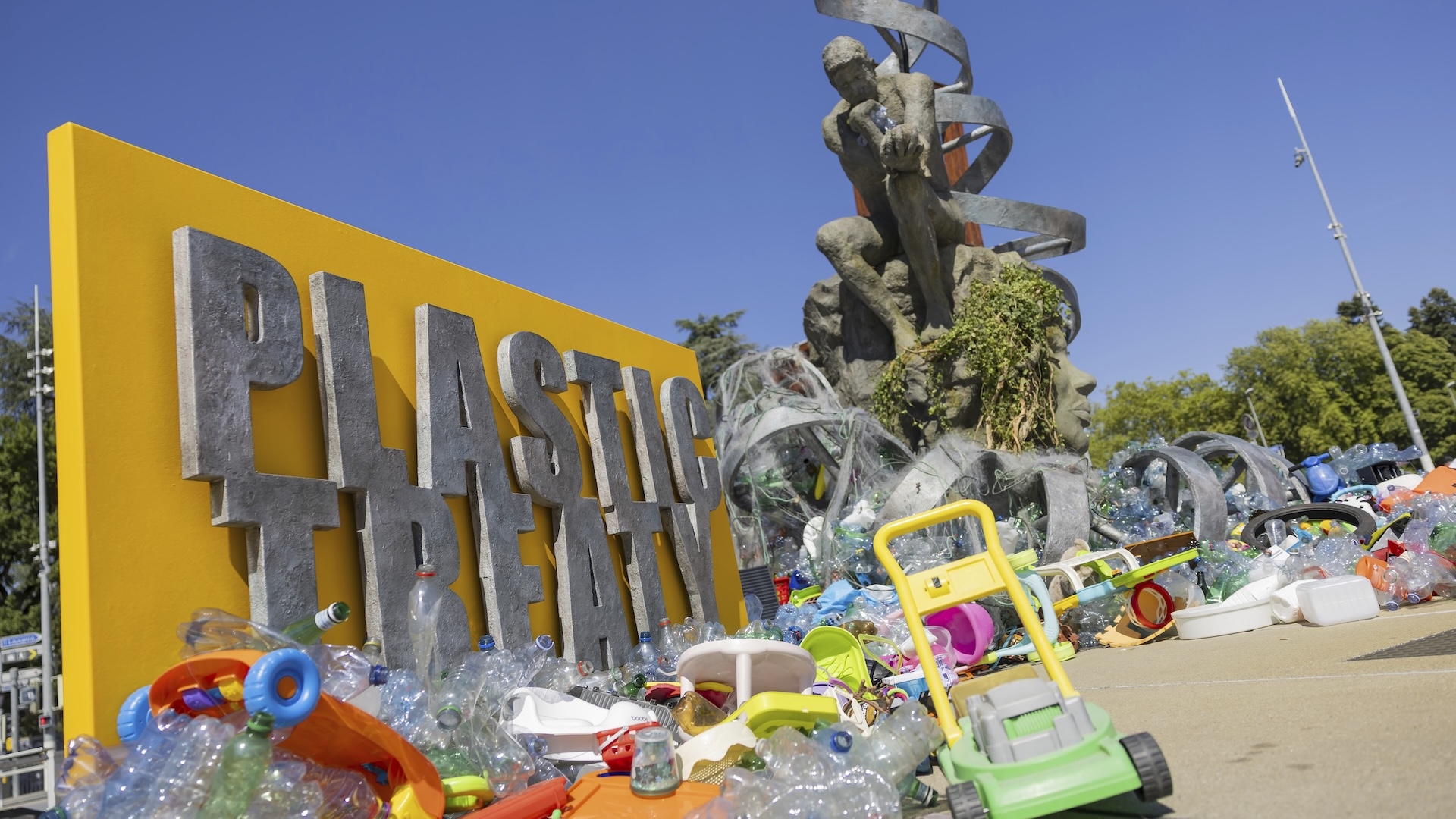
The Intergovernmental Negotiating Committee (INC) was established under the mandate of UN Environment Assembly resolution 5/14 (UNEP/EA.5/Res.14, “End plastic pollution: towards an international legally binding instrument”). By adopting this resolution, governments agreed to negotiate towards a legally binding “global plastics treaty”. The UN Environment Programme (UNEP) has convened the INC five times since its adoption on March 2nd, 2022, with the fifth session (INC-5) taking place in Busan, South Korea in late 2024. That session concluded without a final text, leaving negotiators to reconvene in Geneva for the recently concluded second round – INC 5.2 – which took place from 5–14 August 2025.
SFOC joined the latest round of negotiations as an observer, engaging primarily with the Korean government delegation to urge support for an effective treaty that reduces excessive production and consumption of plastics, thereby cutting pollution and climate impacts across the full life cycle.
The powerful few threatening real action
UNEA 5/14 explicitly calls for measures across the full plastics life cycle. That scope reflects a simple truth: plastic pollution and climate impacts cannot be solved by downstream waste management and recycling alone. Without action at the production stage (upstream), we will continue the cycle of generating more primary, short-use plastics, discarding them, and then producing even more from fossil feedstocks.
The numbers are stark. Global plastic production nearly doubled between 2000 and 2019 (from 239 Mt to 460 Mt) and is projected to approach three times the 2000 level by 2040 (around 736 Mt) (OECD, 2024). As long as production keeps rising, neither pollution nor climate impacts will meaningfully decline. Upstream measures, including a global target on primary plastic polymer production, must be part of the solution.
Yet, from day one of INC 5.2, oil-producing and major power countries made it explicitly clear they would not be accepting obligations on production. Some went as far as to argue that the words “full life cycle” should be lifted from the treaty’s very objective.
At times, pop-culture shorthand crept in; some suggested including upstream measures would make the text into “everything, everywhere, all at once.” The point was the same: limit the treaty’s scope to the downstream stage. This implication that the instrument should focus narrowly on waste and exclude production altogether was the context behind that now-famous resignation: this was not a plastics treaty.
When a few wield a de facto veto
Looking across the room, those blocking real action were a numerical minority, and countries on the front lines of plastic pollution responded with forceful interventions. Still, their obstruction proved effective. There was very little open exchange of views throughout the session discussing Article 6 on primary plastics production reduction; the article never made it to the table for real, line-by-line negotiations in the contact group. It was noted that the issue surfaced in closed-door “informals,” but observers saw no substantive progress in the contact group sessions where Article 6 should have advanced.
As negotiations dragged on, observer access shrank. Meetings increasingly shifted to closed formats. We rushed to a scheduled session only to be told minutes before it had become closed. Other times, public sessions turned into closed “informal-informals” after about an hour. Despite the Chair’s early pledge to maintain transparency, made in a dedicated session with observers, that promise felt distant on the ground.
Civil society finds the gaps—and steps in
On the eve of negotiations, a civil mobilization was held; participants wore red and orange to symbolize fire, holding up large placards calling for those in power to “cut plastic production.” The European heatwave was still not hot enough to dampen the determination of activists who had come from around the globe.
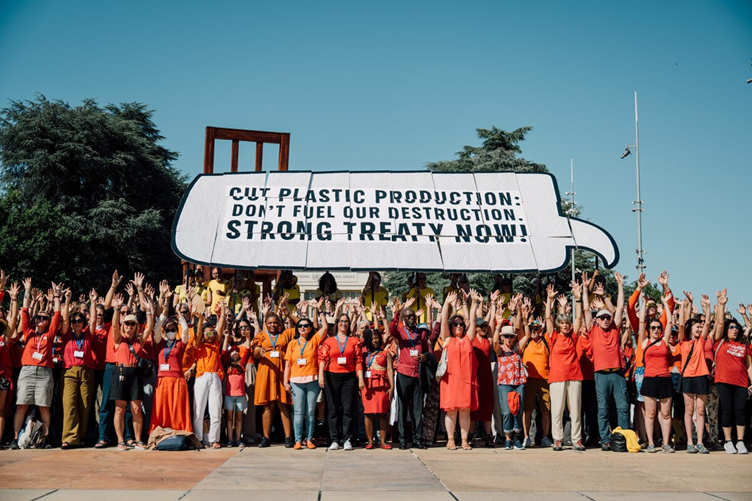
Throughout INC 5.2, observer organizations from across the world filled the conference venue, closely tracking statements by Member States; identifying who was pushing for more ambitious targets, who was blocking and who sat on the fence, coordinating strategies accordingly. Outside the rooms, collective actions reminded delegates that the world is watching and that they carry a responsibility to honor the UNEA 5/14 mandate.
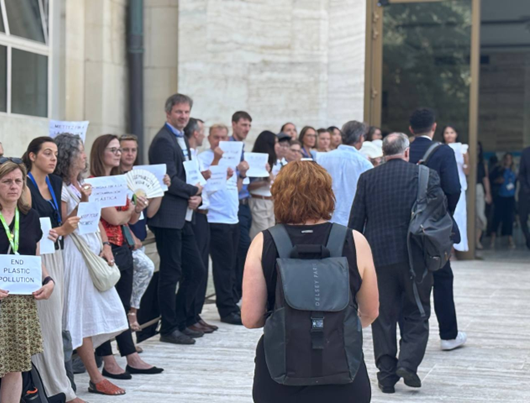
Even in this constrained environment, civil society found ways to be heard. During a mid-session plenary day, NGOs lined the passage where delegates enter the plenary, holding placards reading “End Plastic Pollution”, “Keep the Promise” and “Fix the Process”.
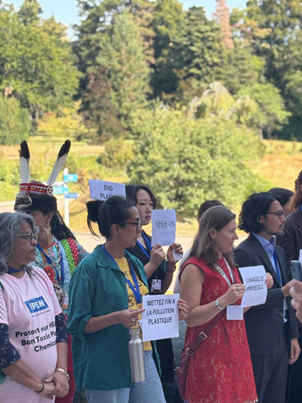
National groups also stayed in constant dialogue with their delegations. SFOC engaged with Korean delegates on the sideline, worked with Korean civil society partners to send letters and secured meetings with delegates. We also met with a Member of the Korean National Assembly visiting the venue to explain why production reduction is essential.
By sheer luck, an SFOC colleague was seated next to a Korean delegate on the flight to Geneva—serendipity that turned into another conversation during the session.
The Chair’s turn—and a long night
On August 13th, with only one day left to negotiate, the Chair circulated a Chair’s text intended to reflect progress. It shocked many: Article 6 on production reduction had been removed entirely, and other critical provisions - like controls on hazardous chemicals in plastics -were missing. Many read this as the Chair caving to pressure from those firmly opposed to upstream obligations.
The final plenary scheduled for 3:00 p.m. on August 14th was repeatedly delayed as closed-door talks continued late into the night. Observers camped out on the lawn, waiting. At 12:48 a.m. on August 15th, a revised Chair’s text appeared—improved in some respects, yet still without Article 6. Plenary ran from dawn into the morning, and INC-5.2 ultimately ended without agreement.
And still—it’s not over until it’s over
One bright morning during the session, NGOs from many countries gathered to share reflections. Sunlight filled the room. Music from around the world played softly. Despite the gridlock, colleagues reminded each other: “It’s not over until it’s over.” That moment stayed with us.
The push to secure a global commitment to curb plastic production is not over, either. Many countries will return to the table determined to address excessive production and its pollution and climate impacts—supported by scientists, experts, journalists, and a broad civil society coalition. Our task is to translate that will into clear, enforceable upstream obligations in the treaty text. That is how we honor UNEA 5/14’s full life-cycle mandate—and how we move from words to a truly effective, legally binding instrument to end plastic pollution.
